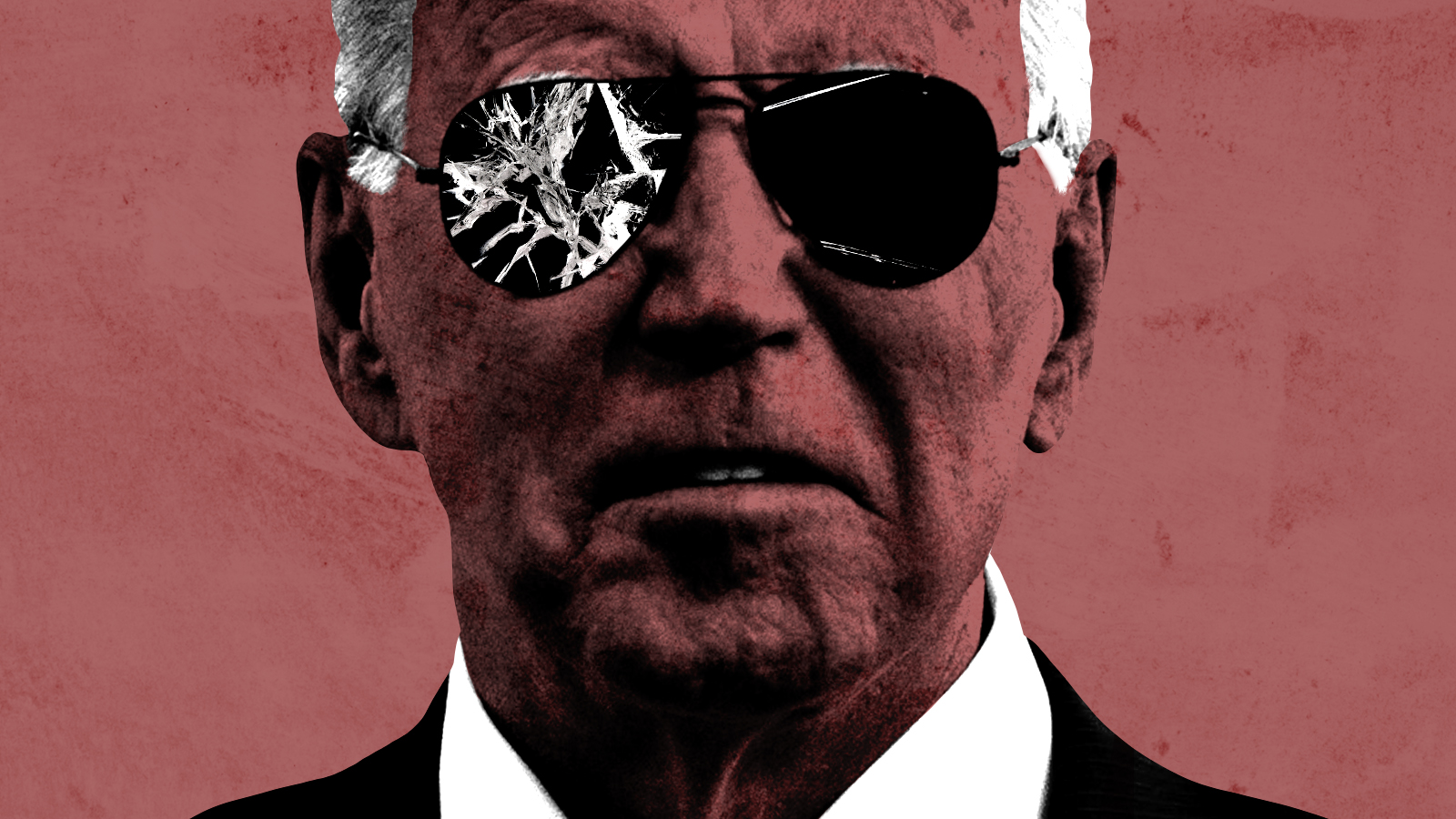Democrats should take what they can get
Forget 'transformational.' Choose 'achievable' — for the sake of democracy


A free daily email with the biggest news stories of the day – and the best features from TheWeek.com
You are now subscribed
Your newsletter sign-up was successful
Remember when Democrats were talking about a "transformational" Biden presidency? Progressives, in particular, were dreaming big and bold. Back in April, a group of notable lefties, including Reps. Ilhan Omar (D-Minn.) and Pramila Jayapal (D-Wash.) and Sens. Bernie Sanders (I-Vt.) and Elizabeth Warren (D-Mass.), introduced a $10 trillion Green New Deal-style infrastructure plan. And that proposal didn't even include other ideas for trillions more on "social infrastructure," such as new paid family leave and childcare benefits, as well as an expanded Medicare program. Scandinavian social democracy, here we come!
Now progressives will be lucky to get even a sliver of that original, expansive vision. The bills currently debated in Congress would spend $1.2 trillion on infrastructure (of which $579 billion would go to new spending) and $3.5 trillion on social programming, like creating the first federal family and medical leave benefit, establishing universal pre-kindergarten, and making community college tuition-free for two years. While most analysts on Wall Street and in Washington think infrastructure spending will stay at $1.2 trillion, they expect $2 trillion or less for the social spending bill.
Or maybe nothing at all. "It's still our base case [that] Democrats [will] find a way to pass a scaled-down Biden agenda, but there are growing signs the Biden agenda could collapse because too many Democrats have unrealistic expectations and refuse to compromise," warned Cornerstone Macro Research, a top policy analysis shop, in a new note to clients.
The Week
Escape your echo chamber. Get the facts behind the news, plus analysis from multiple perspectives.

Sign up for The Week's Free Newsletters
From our morning news briefing to a weekly Good News Newsletter, get the best of The Week delivered directly to your inbox.
From our morning news briefing to a weekly Good News Newsletter, get the best of The Week delivered directly to your inbox.
It's as if progressive expectations from last autumn — when it looked like then-candidate Joe Biden was headed toward an easy win over then-President Donald Trump, and Democrats anticipated sizable congressional majorities — were never updated to match our political reality this year. Instead of a historic Democratic landslide, Biden's legitimacy is still denied by a large swathe of the public, and the party was left with a 50-50 tie in the Senate and three-seat edge in the House, hardly the ideal political foundation for transformational government. (For comparison, Democrats had a Democrat in the White House and large majorities in both houses when they passed Medicare in 1965 and the Affordable Care Act in 2010.)
No one should blame progressives for taking their best shot. But now they should think hard about what happens if this week's stand-off in the House — where progressives are threatening to tank the already Senate-approved infrastructure bill unless they get some guarantee of passage of the larger bill — results an increase in the debt ceiling being the only bill to pass.
I don't mean just the potential electoral consequences, although it seems likely that failure would be terrible for Democratic hopes of holding Congress in November 2022. Both the infrastructure and social spending bills are broadly popular, and even Republicans who may not like the infrastructure bill probably agree the nation has an infrastructure problem. Given the typical off-year election swing to the out-of-power party, Democrats likely need to run on a solid record of achievement.
But there are bigger stakes, ones progressive should realize. After all, they've been the loudest voices complaining that the Trump-era Republican Party has undermined democracy or even set America down the road to fascism. Though some rhetoric is overblown, there's also some basis for those concerns. Illiberalism is rising both here and abroad: Advocacy group Freedom House finds global democracy on the retreat for the past 15 years, including a big step backward for the United States in 2020.
A free daily email with the biggest news stories of the day – and the best features from TheWeek.com
That poor health of global democracy led MIT economist Daron Acemoğlu and a team of researchers to examine what makes people both supportive and skeptical of democracy. The results aren't surprising: A successful democracy makes people enthusiastic about democracy. In particular, Acemoğlu and colleagues conclude in "(Successful) Democracies Breed Their Own Support," it's "exposure to democratic regimes that deliver economic growth, peace and political stability and public services that makes people more willing to support democracy. In contrast, greater exposure to democracies that are not hampered by deep recessions, mired in political instability, or unable to provide public services does not appear to increase support for democracy."
Americans haven't seen a lot of successful governance lately, from the Iraq War to the global financial crisis of 2008 to the COVID-19 pandemic. And while I'm no fan of the $3.5 trillion bill, it would reflect incredibly poorly on American democracy — both domestically and internationally — if we can't even fill a few potholes, strengthen a few bridges, and promptly raise the debt ceiling so financial markets stay calm and the United States doesn't look like an utter laughingstock. Progressives need to pass something here if they don't want to help turn their fascism fears into self-fulfilling prophecy.
So if progressive Democrats have to settle for a far smaller social spending bill — perhaps with means testing of new "universal" programs, for instance — they should grab the opportunity, right after they vote overwhelmingly for the infrastructure bill and the debt hike. American democracy will thank them for it.
James Pethokoukis is the DeWitt Wallace Fellow at the American Enterprise Institute where he runs the AEIdeas blog. He has also written for The New York Times, National Review, Commentary, The Weekly Standard, and other places.
